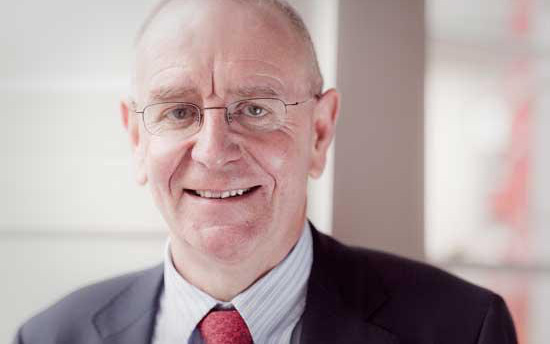Peter Cassells, the chair of the government higher education working group, has said that his group will report by the end of the year, despite “a lot of cynicism” that it would be delayed until after the general election.
Speaking at the Royal Irish Academy this morning, as part of a session entitled “A Dialogue on the Future Funding of Higher Education in Ireland”, Cassells countered worries that the report, and hence the discussion on how higher education institutions are funded, would be pushed back until at least next year, preventing a nuanced discussion on the issues ahead of the election.
Provost Patrick Prendergast, speaking to a joint University Philosophical Society and Trinity College Dublin Students’ Union event last year, had indicated he was concerned that a delay might lead to the debate on third-level funding “being lost” in discussions before the election.
Cassells said that the group had already concluded that the “current situation is unsustainable”, and said that the “status quo is not an option”, referring to how universities and institutes of technology are funded, which is primarily through government funding and a €3000 student contribution charge. Since the economic crisis, all higher education institutions have seen a dramatic decrease in funding.
Cassells also seemed to rule out a graduate tax, by saying that the group was unable to find anywhere that it had been implemented in a sustainable way.
Tom Boland, the CEO of the Higher Education Authority (HEA), also spoke during today’s discussion, and is also a member of the working group. He described the current funding situation as “managed decline”. While the sector is “coping” he said, “in effect everything is gradually being pared back to a bare minimum”. Noting the relative quiet of higher education institutions with regards to the funding problem, he said that “Ireland could not risk the [reputational] damage” of institutions “shouting from the rooftops” about the issue and how much it was affecting them.
The effect the funding issue has had on Trinity has become much more apparent in the past year, with Prof Peter Coxon, a College Board member and Head of the Geography Department, encouraging students to take action against the College, worried that they did not have enough staff to teach the final year of a geography degree. The Philosophy Department also lost eight adjunct academic staff.
Boland said that the answer to the problem “will not lie in increased public investment alone”, and said that the question was primarily “where and how much students should contribute to their education”. He noted that government funding of universities would have to increase, but both Cassells and Boland seemed to indicate that the report was essentially working towards recommending the introduction of tuition fees. Boland, however, cautioned that his “modest musings” have, before, incorrectly “been interpreted as an attempt to pre-empt the report”.
Kevin Donoghue, the President of the Union of Students in Ireland, was due to speak at a panel discussion with Dr Kevin Denny of UCD’s School of Economics and Professor Frances Ruane of the ESRI before the session closes today.
The former Provost of Trinity, Prof John Hegarty – who is Chair of the Royal Irish Academy’s steering group on future funding options for higher education – opened the session this morning. The President of UCD, Prof Andrews Deeks, also spoke this morning, as did Prof Ciaran Ó Catháin, the President of Athlone Institute of Technology and Chair of Institutes of Technology Ireland.
In an interview with The University Times last year, the Minister for Education, Jan O’Sullivan, said that she did not “want to go down the road of students finish and end up with a very large bill – with people owing €50,000”, but when asked, refused to rule out tuition fees, a loan facility, or increases in the Student Contribution Charge.
In 2011, right after categorically ruling out a state-supported student loan facility, the then-Minister for Education, Ruairí Quinn, commissioned the HEA to report on the funding situation. Their recommendations – to increase the student contribution charge in the short-term, and to introduce the very type of loan facility Quinn had opposed – were ignored however, meaning that the upcoming report on higher education funding from the Cassell’s working group is the second such report in the lifetime of the current government.







